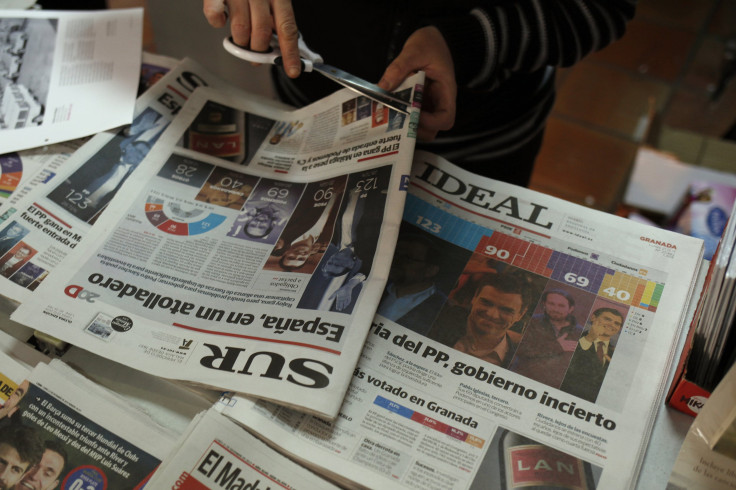Video: Where Now For Spain Economy After Vote?

Spanish stocks fall after an historically fragmented vote in Spain's election heralded weeks of talks to form a coalition government. As David Pollard reports, there are fears the country's economic recovery could be knocked off track.
Video Transcript:
Spain's Podemos has much to celebrate - but does Spain? The upstart challenger surged into third place in the weekend's election.
Splitting a two-party dominance apart on a strong anti-austerity message. "We pledge to defend social justice. Democracy has to reach the economy, so that human rights and dignity are not violated," Podemos party leader Pablo Iglesias told a crowd of supporters.
Incumbent prime minister, Mariano Rajoy, now has the first bite at forming a government.
But even if his Popular Party teams up with the other new challenger, the market-friendly Ciudadanos, they'll still be short of a majority in parliament.
Ushering in an era of questions, not answers, according to World First economist, Jeremy Cook:
"If you wanted to be one economy in 2015 in Europe, you would have wanted to have been Spain. Growth of three per cent, unemployment still high but coming lower, budget issues seemingly a little bit more under control. But the political uncertainty is likely to rock that as we move into the early part of next year."
Stocks on Spain's IBEX were down over 2 percent after the result - bond yields at a one-month high.
After neighbouring Portugal's appointment of a Socialist government just weeks ago, many see a left-leaning alliance emerging in Madrid.
Though even that appears uncertain to local voters, like Elena Duque.
"It's going to be harder to govern, and we'll probably end up with more elections. We'll have to vote again."
An economic as much as a political future hangs in the wind for one of Europe's biggest economies.
© Copyright IBTimes 2024. All rights reserved.




















